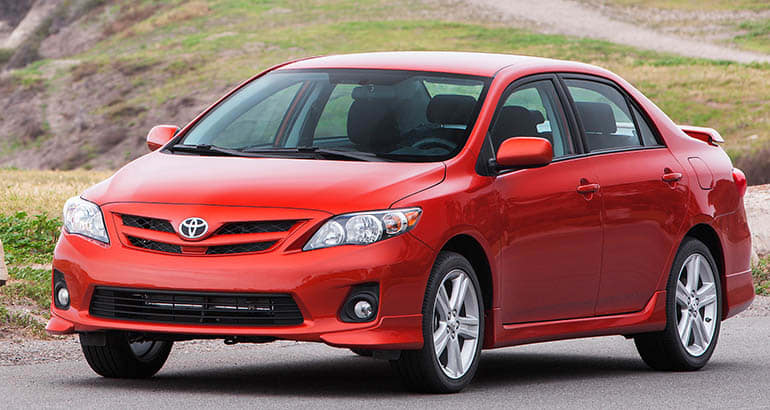Laguna Hills, CA – July 22, 2019 – A subsidiary of Toyota Motor Company is recalling certain Corolla, Sienna, Yaris iA and Camry models due to a labeling flaw that may misinform users of how much weight their automobiles can safely carry. Should motorists go by the poundage listed, the overexertion may lead to a mechanical or handling issue that could lead to a crash. Motorists should check the label on their factory-installed floor mats to see if they’re affected and contact their nearest Toyota dealership so the clerical issue can be corrected. The replacement will come at no charge.
The Defect
In documents filed with the National Highway Traffic Safety Administration, Southeast Toyota Distributors is recalling a combined 1,325 models. While the models themselves differ from one another they all contain the same flaw: a labeling error that misidentifies how much weight the cars can withstand. Load capacity is a detail that automakers must abide by, pursuant to the regulation “Tire Selection and Rims,” of the Federal Motor Vehicle Safety Standard.
The following vehicles may contain errant load capacity information:
- 2017-2019 Camry
- 2017-2019 Corolla
- 2017-2019 Sienna
- 2017-2019 Yaris
- 2017-2019 RAV4
As detailed in the Part 573 Safety Recall Report, whenever weight modifications are made to an automobile between certification and when they first go on showroom floors, they must be accounted for and corroborated through labeling if the weight differentiation is 100 pounds or more. However, some of the labels affixed to the factory floor mats were “not accurate to within 1% of the actual added weight.”
“In the worst case, a driver may overload a vehicle, which may increase the risk of a crash,” the report said.
Timeline of Events
As is frequently the case, this issue was first noticed during a routine quality control check, this time conducted by Southeast Toyota Distributors. In March, a staff member determined that the load capacity modification specifics were included in only a portion of the automobiles that had received the weight changes. SET informed corporate and on June 20, the automaker determined that the appropriate corrections should proceed in accordance with the FMVSS standard No. 110. Dealers were notified of the impending recall roughly a week later.
The Solution
Starting no later than August 27, SET says it will brief Toyota owners that their vehicle may be affected and will encourage them to bring the car to a local dealership. The proper label will be affixed to the floor mat, so it corresponds with the actual net weight. This will come at no expense to the owner.
For more information on this or any other safety recall, please visit MotorSafety.org. Be sure to have your 17-digit VIN available.

